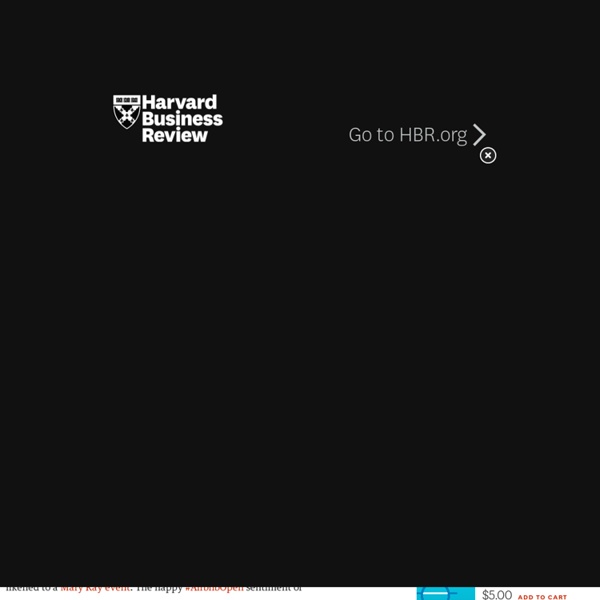The Gig Economy Won't Last Because It's Being Sued To Death
When Vilma and Greta Zenelaj came across a Craigslist job ad that promised they could make as much as $22 an hour and get paid fast, it seemed like a good deal. The Albanian sisters had moved to Santa Monica to get a foothold in the film industry, and though they had produced a few independent features, they had run out of savings before they could also make a living. Now they were desperate to pay their bills. Handy (then Handybook), the company that posted the Craigslist ad, is best known as a cleaning service. But the Zenelajs had never heard of the gig economy, and it wasn’t until orientation that they realized they would not be employees of Handy. Soon they were booking up to four cleanings a day through the platform. But the sisters allege that other kinds of work independence were a farce. "It is not fair, because there are laws here," says Vilma. Lawsuits like the one being brought against Handy are just the most threatening cloud in a brewing storm.
The Gig Economy: The Force That Could Save the American Worker? | Innovation Insights
It’s been five years this week since the onset of the Financial Crisis and the subsequent unraveling of the U.S. economy. Yesterday we learned that the employment rate between the highest- and lowest-income families is at its widest since officials began tracking data a decade ago, reports the The Associated Press. The figures are startling: the unemployment rate for those earning less than $20,000 is now 21 percent, nearly matching the rate for all workers during the 1930s Great Depression. Amid these sobering headlines, you can’t blame American workers for despairing over their professional lives. Yet there are glimmers of hope. It could be the force that saves the American worker. This revolution is certainly the result of economic forces over the last decade, particularly in the wake of the Financial Crisis and Great Recession. Success was once defined as being able to stay at a company for a long time and move up the corporate ladder. Who are these people? Go Back to Top.
'Economia do bico' preocupa EUA
Quando o Escritório do Comissário do Trabalho da Califórnia decidiu, no mês passado, que um motorista do Uber era um empregado que devia ter uma série de proteções no lugar de trabalho - e não, como a companhia sustentava, um fornecedor autônomo -, ele ressaltou os sentimentos ambíguos de muitos americanos sobre o que está sendo chamado, cada vez mais, de "economia do bico". De um lado, startups como o Uber, que está apelando da decisão, e Lyft tornaram possível contratar corridas via um smartphone em alguns segundos. De outro, o Uber - que emprega diretamente menos de 4 mil das mais de 160 mil pessoas nos EUA que dependem dele para ao menos parte de seu ganha-pão - e companhias afins representam um desafio para ideias estabelecidas do que significa ter um emprego. Nas circunstâncias, porém, o Uber não é tanto uma inovação do mercado de trabalho como a culminação de uma tendência que já dura uma geração. Crescimento. Mas muitos dos seus colegas não se saíram tão bem.
Silicon Valley's gig economy is not the future of work – it's driving down wages | Sarah Jaffe
Like many of the other tech companies – Lyft, Zaarly, Fiverr – that have gotten bucketloads of venture capital to match underemployed people with no-commitment gigs, TaskRabbit taps into an existing need – any kind of income in an economy increasingly built on low-wage jobs or no jobs at all – and fulfils a real desire for flexibility among 21st-century workers. The company's CEO has said that TaskRabbit's goal is to "revolutionize the world's labor force". But TaskRabbit, like all the others, is just a site and an app that matches workers – "taskers", in the company's terminology – with one-off jobs that other people want done for them. In the old days – as in, a couple of weeks ago – workers would bid on jobs posted by potential clients on the TaskRabbit site, and clients would select the best bid for "outsourcing" chores like cleaning the oven, wrapping gifts or assembling Ikea furniture. Now, TaskRabbit has changed its rules. The taskers are not pleased.
Sociedade do custo zero trará fim do capitalismo, diz livro
São Paulo - Na segunda metade do século XXI, a economia mundial será híbrida e um sistema colaborativo estará convivendo com um capitalismo cada vez menos importante. A previsão provocativa é do americano Jeremy Rifkin, que acaba de publicar seu novo livro "The Zero Marginal Cost Society" ("A Sociedade do Custo Marginal Zero", em tradução livre). Depois de uma série de bestsellers sobre os impactos da tecnologia na economia, ele foi além e vislumbrou um futuro no qual a lógica colaborativa da internet tomou conta de quase todo o sistema. Em outras palavras: depois de séculos nos quais o capitalismo conseguiu levar várias dimensões da vida humana para a esfera econômica, o processo começou a se reverter. Tese Para Rifkin, isso é fruto do próprio dinamismo do sistema. Isso apareceu primeiro em indústrias como a do entretenimento e comunicação, completamente modificadas pela internet, mas já começa a ficar claro em outros campos. Tecnologia, energia e trabalho Futuro



